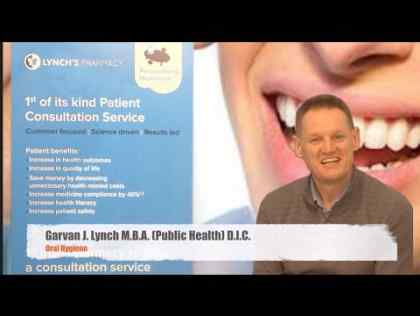
What is it?
Oral thrush is a condition in which the fungus Candida albicans accumulates on the lining of your mouth.
Oral thrush causes creamy white lesions, usually on your tongue or inner cheeks. The lesions can be painful and may bleed slightly when you scrape them. Sometimes oral thrush may spread to the roof of your mouth, your gums, tonsils or the back of your throat.
Although oral thrush can affect anyone, it's more likely to occur in babies and people who wear dentures, use inhaled corticosteroids or have compromised immune systems. Oral thrush is a minor problem if you're healthy, but if you have a weakened immune system, symptoms of oral thrush may be more severe and difficult to control.
Symptoms
Children and adults
Initially, you may not have noticeable oral thrush symptoms. Signs and symptoms may develop suddenly, but they may persist for a long time and can include:
- Creamy, white lesions on your tongue, inner cheeks and sometimes on the roof of your mouth, gums and tonsils
- Lesions with a cottage cheese-like appearance
- Pain
- Slight bleeding if the lesions are rubbed or scraped
- Cracking at the corners of your mouth
- A cottony feeling in your mouth
- Loss of taste
In severe cases, the lesions may spread downward into your oesophagus — the long, muscular tube stretching from the back of your mouth to your stomach (Candida esophagitis). If this occurs, you may experience difficulty swallowing or feel as if food is getting stuck in your throat.
Infants and breast-feeding mothers
In addition to the distinctive white mouth lesions, infants may have trouble feeding or be fussy and irritable. They can also pass the infection to their mothers during breast-feeding. The infection may then pass back and forth between mother's breasts and baby's mouth. Women whose breasts are infected with candida may experience the following signs and symptoms:
- Unusually red, sensitive or itchy nipples
- Shiny or flaky skin on the areola
- Unusual pain during nursing or painful nipples between feedings
- Stabbing pains deep within the breast
Causes
Oral thrush and other candida infections can occur when your immune system is weakened by disease or drugs such as prednisone, or when antibiotics disturb the natural balance of microorganisms in your body.
Normally, your immune system works to repel harmful invading organisms, such as viruses, bacteria and fungi, while maintaining a balance between "good" and "bad" microbes that normally inhabit your body. But sometimes these protective mechanisms fail, which can allow an oral thrush infection to take hold.
These illnesses may make you more susceptible to oral thrush infection:
- HIV/AIDS. The human immunodeficiency virus (HIV) — the virus that causes AIDS — damages or destroys cells of your immune system, making you more susceptible to opportunistic infections that your body would normally resist. Repeated bouts of oral thrush may be the first sign of a HIV infection.
- Cancer. If you're dealing with cancer, your immune system is likely to be weakened both from the disease and from treatments such as chemotherapy and radiation, increasing your risk of candida infections such as oral thrush.
- Diabetes mellitus. If you don't know you have diabetes or the disease isn't well controlled, your saliva may contain large amounts of sugar, which encourages the growth of candida.
- Vaginal yeast infections. Vaginal yeast infections are caused by the same fungus that causes oral thrush. Although a yeast infection isn't dangerous, if you're pregnant you can pass the fungus to your baby during delivery. As a result, your newborn may develop oral thrush.
Risk factors
Anyone can develop oral thrush, but the infection is more common in some. Risk factors include:
- Being an infant
- Having a compromised immune system
- Wearing dentures
- Having other health conditions, such as diabetes or anemia
- Taking certain medications, such as antibiotics, or oral or inhaled corticosteroids
- Undergoing chemotherapy or radiation treatment for cancer
- Having conditions that cause dry mouth (xerostomia)
- Smoking
Complications
Oral thrush is seldom a problem for healthy children and adults, although the infection may return even after it's been treated. For people with compromised immune systems, however, thrush can be more serious.
If you have HIV, you may have especially severe symptoms in your mouth or oesophagus, which can make eating painful and difficult. If the infection spreads to the intestines, it becomes difficult to receive adequate nutrition. In addition, thrush is more likely to spread to other parts of the body if you have cancer or other conditions that weaken the immune system. In that case, the areas most likely to be affected include the digestive tract, lungs and liver.
Diagnosis
If thrush is limited to your mouth
Oral thrush can usually be diagnosed simply by looking at the lesions, but sometimes a small sample is examined under a microscope to confirm the diagnosis.
In older children or adolescents who have no other identified risk factors, an underlying medical condition may be the cause of oral thrush. If your doctor suspects that to be the case, your doctor will perform a physical exam as well as recommend certain blood tests to help find the source of the problem.
If thrush is in your oesophagus
Thrush that extends into the oesophagus can be serious. To help diagnose this condition, your doctor may ask you to have one or more of the following tests:
- Throat culture. In this procedure, the back of your throat is swabbed with sterile cotton and the tissue sample cultured on a special medium to help determine which bacteria or fungi, if any, are causing your symptoms.
- Endoscopic examination. In this procedure, your doctor examines your oesophagus, stomach and the upper part of your small intestine (duodenum), using a lighted, flexible tube with a camera on the tip (endoscope).
References
http://www.webmd.com/oral-health/guide/dental-health-thrush
https://www.hse.ie/eng/health/az/A/Adults'-oral-thrush/Treating-oral-thrush.html
http://www.emedicinehealth.com/oral_thrush/article_em.htm
http://www.nhs.uk/conditions/Oral-thrush---adults/Pages/Introduction.aspx
http://www.healthline.com/health/thrush



